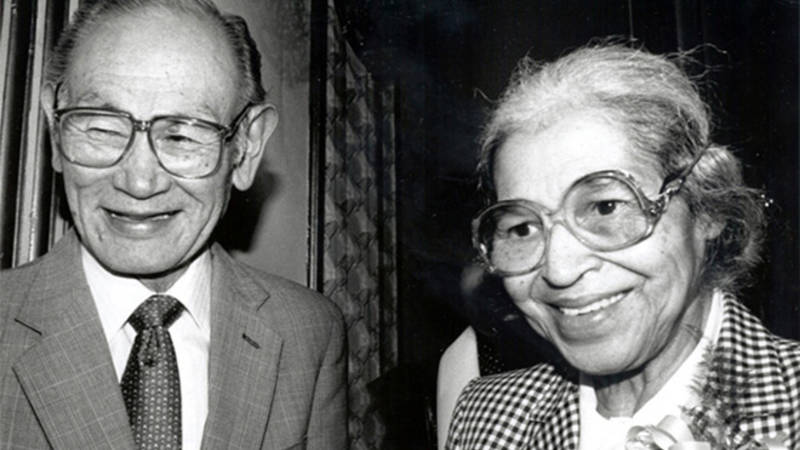- State: ID
- NPCA Region: Northern Rockies
- Est. Date: 2001
Air Quality Conditions
View the Polluted Parks ReportVisibility
Unsatisfactory
Health
Unsatisfactory
Nature
Unsatisfactory
Climate Change Threats
Minidoka National Historic Site tells the painful stories of the forced incarceration of Japanese Americans during World War II and serves as an important reminder of the fragility of our democratic values and ideals.
Park visitors can experience immersive learning and a sense of isolation and remoteness due to the sweeping vistas of surrounding lands and distant mountains.
History of Japanese American Incarceration
In 1942, the signing of Executive Order 9066 created exclusion zones on the West Coast, paving the way for the mass incarceration without due process of 120,000 Japanese Americans and Japanese nationals.
Within weeks, families were forced to leave their lives behind — sell or give away their property, find homes for their pets, and say goodbye to friends and neighbors. First imprisoned at “Assembly Centers” and forced to live in local stockyards and horse stalls at racetracks and fairgrounds, they were later moved to “internment camps” or “relocation camps” in remote interior areas of the West.
Families from Alaska, Washington and Oregon were imprisoned for three years at Minidoka in remote south central Idaho. A total of 13,000 people were imprisoned in harsh and cramped conditions, surrounded by barbed wire and guarded by military police. Families found ways to cope and attempted to create normalcy through daily activities. Incarcerees cleared the surrounding public land, created the farming irrigation system and provided labor to neighboring farms. Over 900 Japanese Americans at Minidoka enlisted in the U.S. military while their families remained imprisoned at Minidoka.
Minidoka closed on October 28, 1945. Families were forced to once again rebuild their lives, uncertain where to move, resettling and persevering despite the discrimination they faced. Survivors and their descendants continue to carry the pain and trauma of being labeled as disloyal and traitors by their own country, simply because of their ancestry. This pain of discrimination continues to resonate today in the Japanese American community as our country continues to fight racism and hate crimes targeting Asian Americans and other communities of color.
Today, survivors and descendants of Japanese American incarcerees hold annual pilgrimages to Minidoka and other incarceration sites to heal from this painful history. The Minidoka National Historic Site provides public education on the history on forced incarceration of Japanese Americans leading up to World War II and the importance of protecting civil and constitutional rights in the United States. Congress and Presidents of both parties have taken official actions to acknowledge that the incarceration of Japanese Americans was a gross violation of civil rights.
More about Minidoka
-
Read more about Confronting America's Dark Past
Blog Post Confronting America's Dark Past 80 years ago, the federal government imprisoned innocent civilians for their Japanese ancestry. Today, survivors and their descendants fight to preserve the sites where these injustices took place — and to not let history repeat itself.
-
Read more about The Day of Remembrance Marks Need for Continued Japanese American Incarceration Site Protections
Press Release The Day of Remembrance Marks Need for Continued Japanese American Incarceration Site Protections Conservation group advocates for further protections to honor survivors and descendants’ experiences.
-
Read more about The Art of Gaman
Magazine Article The Art of Gaman Bearing the seemingly unbearable with patience and dignity.
Preserve Our Parks
Make a tax-deductible gift today to provide a brighter future for our national parks and the millions of Americans who enjoy them.
Donate Now
